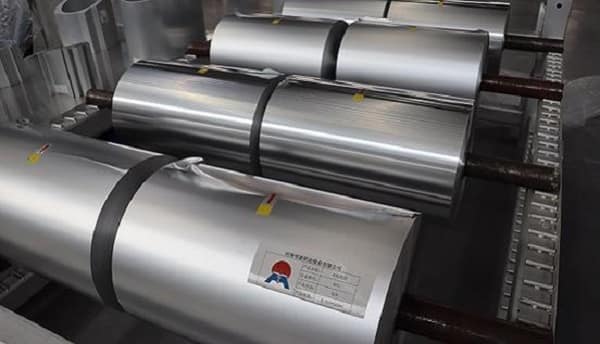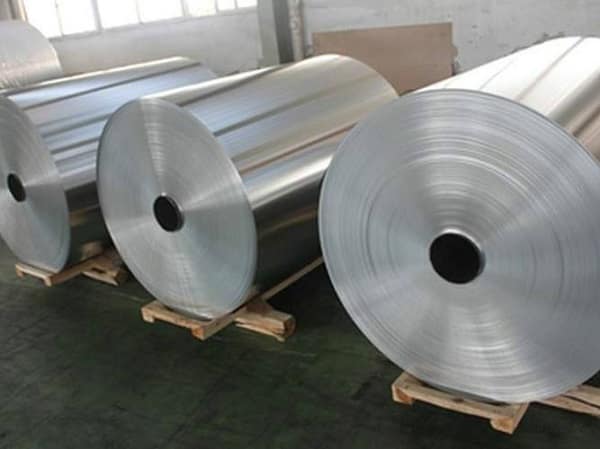Introduction: Does Aluminum Rust?
Aluminum is one of the most widely used materials in the world today, and for good reason. Known for its lightweight, durability, and versatility, aluminum is integral to numerous industries, from aerospace to automotive, construction, and beyond. But there’s one crucial question that often comes up: Does aluminum rust? In this article, we will explore this question in depth and discuss why aluminum’s resistance to rust makes it a material of choice for many applications.
Aluminum’s ability to resist rusting not only contributes to its widespread use but also offers distinct advantages over other metals that are prone to corrosion. We will examine these benefits in detail and explain why aluminum’s resistance to rust is one of its most important characteristics in modern engineering.
Does Aluminum Rust? The Simple Answer
Let’s address the question directly. Does aluminum rust? Technically, no. Rust is the term used for the oxidation process of iron and steel, which forms a reddish-brown coating known as iron oxide. Aluminum, on the other hand, does not rust in the same way.
Aluminum is highly resistant to rust because it forms a natural oxide layer when exposed to air. This oxide layer protects the underlying metal from further corrosion, preventing the typical rusting process seen in other metals. In fact, this oxide layer is often what gives aluminum its characteristic matte finish and is essential to its long-lasting durability.
The Advantages of Aluminum’s Resistance to Rust
Durability and Longevity
Does aluminum rust? No, and that’s why aluminum products tend to last much longer than their counterparts made from other metals. Because aluminum doesn’t rust, items such as aluminum siding, roofing materials, outdoor furniture, and even airplane parts are able to endure the harshest environmental conditions for decades. The natural oxide layer acts as a shield, ensuring that the aluminum remains protected even when exposed to moisture, salt, and other corrosive agents.
This resistance to rust and corrosion means less maintenance, fewer replacements, and greater overall cost savings for both businesses and consumers.

Lightweight Yet Strong
One of the most impressive advantages of aluminum is its combination of strength and lightness. Unlike steel, which can rust and corrode over time, aluminum’s resistance to corrosion allows it to retain its strength without the added weight. This property is especially crucial in industries such as aerospace, automotive, and transportation, where minimizing weight is paramount to improving fuel efficiency and performance.
For example, aluminum is used extensively in the aerospace industry, where rusting would be catastrophic to safety and efficiency. The fact that aluminum does not rust contributes significantly to its ability to withstand the harsh conditions of high altitudes and turbulent weather.
Cost-Effectiveness Over Time
Although aluminum can be more expensive initially than other metals, its ability to resist rust and corrosion makes it a wise long-term investment. Steel and iron products require regular maintenance to prevent rust, such as painting, coating, or replacing damaged parts. Aluminum, however, doesn’t require the same level of upkeep. Its natural corrosion resistance helps maintain its integrity, which means fewer repair costs over time.
Additionally, the lightweight nature of aluminum can reduce shipping and handling costs, making it an even more appealing option in many industries. So, in the long run, aluminum’s resistance to rust makes it a cost-effective choice despite its higher upfront costs.
How Does Aluminum’s Oxide Layer Work?
Now that we’ve established that aluminum doesn’t rust, let’s dive into how the oxide layer works to protect it from corrosion. The oxide layer is formed naturally when aluminum reacts with oxygen in the air. Unlike the rust on iron and steel, which flakes off and exposes new layers of metal to further oxidation, aluminum’s oxide layer adheres tightly to the surface and serves as a protective barrier.
This oxide layer is so effective that even when the aluminum is scratched or damaged, the exposed metal immediately reacts with oxygen to form a new layer of oxide. This self-healing property ensures that the aluminum remains protected over time.
The Impact of Aluminum’s Resistance to Rust in Different Industries
Construction
In construction, aluminum’s rust resistance has revolutionized the way buildings are designed. Aluminum is commonly used in window frames, doors, roofing, and cladding because of its ability to withstand the elements. Whether exposed to rain, wind, or salt from the sea, aluminum maintains its appearance and functionality without the need for frequent repairs or replacements.
Buildings that incorporate aluminum materials tend to have longer lifespans and better energy efficiency, thanks to aluminum’s heat-reflective properties. This is especially true in coastal areas, where the salt in the air can accelerate corrosion in other materials. The question of does aluminum rust is practically irrelevant in such environments, as aluminum’s corrosion resistance ensures it remains structurally sound for years.
Automotive Industry
The automotive industry has increasingly adopted aluminum for manufacturing car bodies and components, replacing heavier materials like steel. The reason is simple: does aluminum rust? No, and because of this, aluminum cars last longer, require less maintenance, and perform better on the road. The automotive industry also benefits from aluminum’s lightweight nature, as it reduces the overall weight of vehicles, improving fuel efficiency and reducing emissions.
In regions with high humidity or where cars are exposed to road salts in winter, aluminum’s rust resistance makes it an ideal material for vehicle construction. Unlike steel, which can be prone to rusting under such conditions, aluminum parts maintain their integrity without the need for frequent repairs.
Aerospace
Aerospace engineering demands the highest levels of safety, durability, and performance. One of the key benefits of aluminum in aerospace applications is its incredible resistance to rust and corrosion. Aircraft are constantly exposed to extreme conditions, including high levels of moisture, varying temperatures, and exposure to the elements. Aluminum’s ability to resist rust means it can maintain its structural integrity in these conditions, ensuring the safety of passengers and cargo.
In addition to preventing rust, aluminum’s lightweight nature allows aircraft to fly more efficiently, reducing fuel consumption and operating costs. Does aluminum rust? No, and this fact is one of the primary reasons why aluminum continues to be a critical material in the aerospace industry.
Environmental Impact: Sustainability and Aluminum’s Non-Rusting Qualities
Aluminum’s resistance to rust also makes it a more sustainable option when compared to materials that require constant maintenance and replacement. Unlike materials that need to be coated, painted, or treated to prevent rust, aluminum’s natural oxide layer provides built-in protection. This reduces the need for harmful chemicals and preservatives, making aluminum a more environmentally friendly choice in the long run.
Moreover, aluminum is 100% recyclable, and its recycling process requires only a fraction of the energy used to create new aluminum. This makes it a sustainable material for modern industries and a key player in global efforts to reduce environmental impact.
Why Does Aluminum Rust? And Why This Question Matters
To summarize, does aluminum rust? No, it does not in the same way that iron or steel does. Aluminum’s resistance to rust is a major reason for its widespread use across industries. This property allows aluminum to perform better, last longer, and remain cost-effective, all while contributing to sustainability efforts.
The benefits of aluminum’s resistance to rust are far-reaching, from construction to aerospace and automotive industries. By understanding why aluminum doesn’t rust, we gain a deeper appreciation for its role in modern innovation. Whether you’re designing a building, creating a car, or engineering an aircraft, choosing aluminum means choosing a material that can stand the test of time, resist the elements, and continue performing at its best without the constant worry of rust or corrosion.
So, the next time someone asks, does aluminum rust? You’ll have a definitive, confident answer. No, it doesn’t, and that’s one of the many reasons why aluminum is an indispensable material in today’s world.
